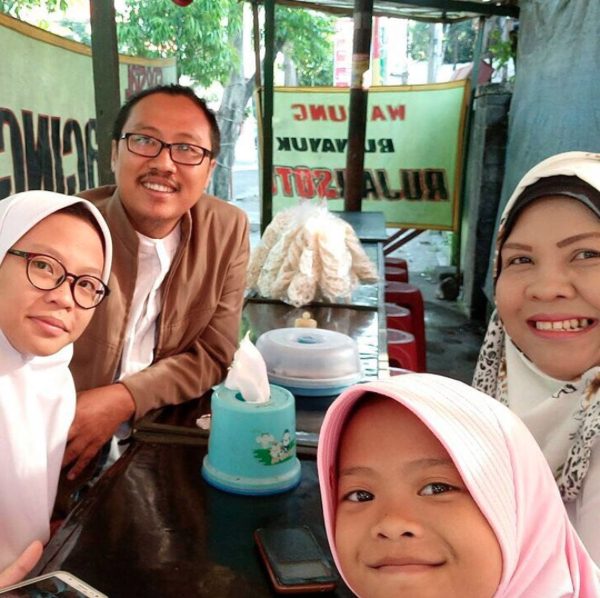[et_pb_section fb_built="1" _builder_version="3.0.47" da_is_popup="off" da_exit_intent="off" da_has_close="on" da_alt_close="off" da_dark_close="off" da_not_modal="on" da_is_singular="off" da_with_loader="off" da_has_shadow="on" da_disable_devices="off|off|off"][et_pb_row _builder_version="3.0.47" background_size="initial" background_position="top_left" background_repeat="repeat"][et_pb_column type="4_4" _builder_version="3.0.47" parallax="off" parallax_method="on"][et_pb_text _builder_version="3.0.98" text_font_size="17px" header_font="Nunito||||||||"]
Meet the changemakers behind #breakfreefromplastic who are pushing for real solutions
When you think of zero waste, who comes to your mind? Here in the United States, people like Lauren Singer are often front and center. If you aren’t familiar with Lauren, she’s the Brooklynite twenty-something who fit five years worth of trash in a mason jar and recently launched an upscale “package-free” shop. Her efforts may very well be striking a chord with mainstream media, but there’s a massive integral piece of the zero waste movement being overlooked – and it’s happening on the other side of the world.
Meet Tiza Mafira for instance, a super savvy environmental lawyer leading Indonesia’s national plastic bag policy. In collaboration with local organizations and changemakers, she founded Plastic Bag Diet (Gerakan Indonesia Diet Kantong Plastik [GIDKP]) in 2013. In a pilot project, they pushed retailers to reduce single use bags by 55%, which in turn pressured the government to enact a mandatory bag charge going into effect in January 2018. This is no small feat for a country with zero regulation on plastic bags. Once implemented, it will be the most important plastic bag policy to date, given that Indonesia has a population of 220 million people (it’s the fourth most populous country in the world).

[/et_pb_text][/et_pb_column][/et_pb_row][et_pb_row _builder_version="3.0.98"][et_pb_column type="4_4" _builder_version="3.0.98" parallax="off" parallax_method="on"][et_pb_code _builder_version="3.0.98"]<iframe src="https://www.facebook.com/plugins/video.php?href=https%3A%2F%2Fwww.facebook.com%2Fstoryofstuff%2Fvideos%2F10156575802885884%2F&show_text=0&width=560" width="1080" height="520" style="border:none;overflow:hidden" scrolling="no" frameborder="0" allowfullscreen="true" allow="autoplay; clipboard-write; encrypted-media; picture-in-picture; web-share" allowFullScreen="true"></iframe>[/et_pb_code][/et_pb_column][/et_pb_row][et_pb_row _builder_version="3.0.47" background_size="initial" background_position="top_left" background_repeat="repeat"][et_pb_column type="4_4" _builder_version="3.0.47" parallax="off" parallax_method="on"][et_pb_text _builder_version="3.0.98" text_font_size="17px" header_font="Nunito||||||||"]
And meet Prigi Arisandi and Daru Setyorini from East Java, two zero waste heroes working tirelessly to stop industrial pollution from flowing into Surabaya’s river that provides drinking water to 3 million people. In a recent interview, Daru reported that 3-5 tonnes of waste largely from the US and China are dumped daily, leaching toxins into the river that cause major health implications for locals. Prigi, who grew up in the area decided to take matters into his own hands. In 2011, he founded the Ecological Observation and Wetlands Conservation (Ecoton) and inspired thousands of people to become Surabaya river advocates to prevent illegal dumping. Their River Detection program teaches children in 50 different schools how to monitor river quality and report their findings to the government. Prigi is also a well-deserved recipient of the Goldman Environmental Prize, one of the highest prizes for environmentalists in the world.
These are just a couple examples of the game-changing faces behind the #breakfreefromplastic movement. Only a few weeks ago, community leaders from over 20 countries, including members from Ecoton and the Plastic Bag Diet joined forces in Bali, Indonesia to strategize ways to cut plastic pollution from our lives. It was incredibly humbling to hear the stories straight from the heroes fighting plastic waste on the front lines of this very serious and prolific global crisis.
Just last week, a new study released data on all the plastics ever made, and the findings are bleak. More than 8.3 billion tons of plastic has been produced since 1950 and over half the plastic ever produced was made over the last 13 years. The growth of single-use plastic in particular, is making a larger and larger impact in places like Southeast Asia with the introduction of sachets. These are low-grade plastic packaging created for consumers who buy small amounts of products that would otherwise be unaffordable. Sachets have no economic value so there is no monetary incentive for waste pickers to clean them up. And because they are incredibly lightweight, they travel far and wide from where they are sold, often circumventing the landfills and ending up in our ocean.
What corporate behemoths like Dow, Exxon, Johnson and Johnson, and Unilever conveniently leave out of their narrative is how burning plastic leads to detrimental health problems for the communities living nearby, frequently low-income people of color. In order to guarantee reducing the amount of plastic entering our lives, they must stop producing it in the first place.
And that’s where the #breakfreefromplastic movement comes in. Given the nature of a global community, our hope is that plastic producers who ban certain items in the US and Europe will no longer continue to quietly manufacture and sell overseas, which is currently “business as usual.”
This movement is rooted in values of human rights and equity, and in this movement, members from the global north are following the leadership, knowledge, and solutions being set forth by leaders from Indonesia, India, Philippines, Malaysia, and China who are pioneering a new zero waste paradigm.
With citizen muscle action on a widespread scale, corporations will no longer be able to operate by the status quo. The #breakfreefromplastic movement is taking a monumental, global stand with a simple yet powerful message: We believe in an abundance of life, not an abundance of plastic. Will you join us?

[/et_pb_text][/et_pb_column][/et_pb_row][/et_pb_section]




